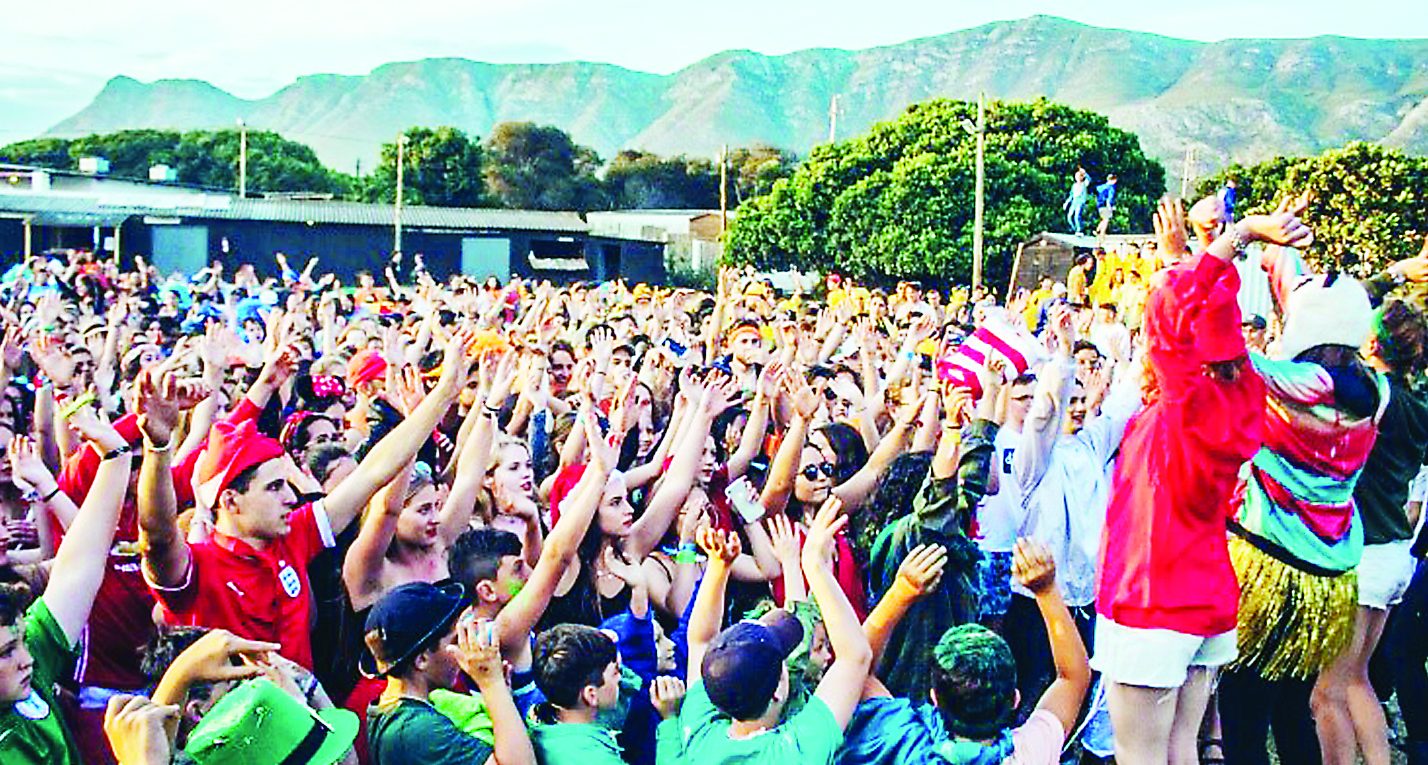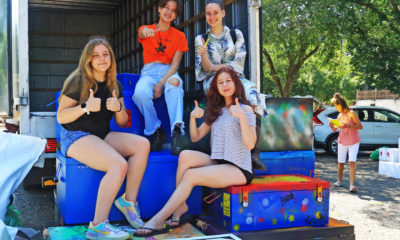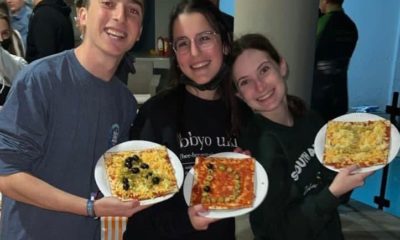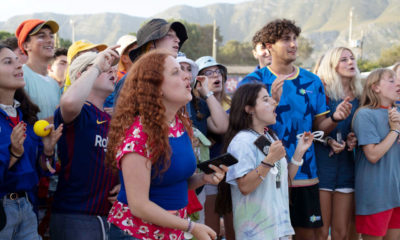
Community

Youth movements rebuilding from the ground up
Published
2 years agoon
After two years of no machanot and very few in-person events, local Jewish youth movements have reached a precarious turning point. Left battered and bruised by the COVID-19 pandemic, this year is a crucial time of rebuilding, and they are going to need support from the community to do so.
“We’re going to need all hands on deck, and the most passionate minds in the South African Jewish community to come together and ensure that the youth movements thrive because they’re absolutely key to the future of this community,” says Habonim Dror Manhig Wayne Sussman.
“It’s going to be incredibly hard for youth movements in 2022,” he says. “There’s definitely light at the end of this tunnel, but we’ve got to remember that both madrichim and channichim have lost two years of connection and experience on their campsites. This is very difficult to replace, so it’s going to require a lot of hard work, imagination, and creativity.”
Habonim Dror Mazkir (general secretary) Aaron Kruss-van der Heever says, “Having our in-year programming severely lessened as well as the lack of machanot has been nothing short of disastrous. My deepest commiserations and respect go out to the 2021 leadership, who worked until the last breath to try to ensure that machaneh could happen last December. Unfortunately, with the surge of the fourth wave, an event of such epic scale wasn’t possible.”
Sussman says it reminds him of his own time as a madrich. “I became involved in Habonim in 1999. We inherited a movement which was largely broken [because of various factors]. It took us about four to six years to rebuild it,” he says.
Though Habonim and the other youth movements aren’t “broken” today, they still face enormous challenges as a result of the pandemic. “This is a greater challenge than what Habonim experienced in the late 90s and during other seminal events such as World War II,” says Sussman. “I say this because during World War II, Habonim was still having activities. Madrichim still had the opportunity to form connections. Whereas here, for two years, movements have missed their machanot and the leadership hasn’t been able to build close connections with channichim and fellow leaders.
“The movements have their work cut out for them,” he says. “It’s going to require a lot of dedication, and it’s going to be absolutely crucial that they have a great year. It’s a year of rebuilding, of reminding kids what they’ve missed out on, and how central the youth movement should be to their lives and the community. Ultimately, the best summers of your life will be at a youth movement event or camp.” But he has complete faith in Habonim’s leadership to take the movement forward.
“The lack of presence at schools and Jewish community events is definitely being felt”, says Kruss-van der Heever. “In addition, we’re starting to feel the ripple effect of the cancelled machanot in the form of a leadership disconnect. Many who last attended machaneh in Sollelim (Grade 9) or Sayarim (Grade 10) are now eligible for leadership programmes. But they don’t have the necessary bridging of the senior years of being a channich/ah.”
Habonim is orchestrating a co-ordinated plan to rebuild the movement in 2022. “All our regularly scheduled projects including meetings, events, leadership seminars, Israel trips, as well as stay-over camps are being planned thoroughly for this year [with contingencies of course],” Kruss-van der Heever says. “Our focus is on retaining relationships with our channichomot, parents, and bogromit [graduates], and to expose our chevre to our world-class programming.”
Bnei Akiva Rosh Machaneh for 2022, Dena Cohen, says, “Bnei Akiva machaneh is a place where our maddies and channies can engage deeply with each other, and the lack of them over the past two years has been a challenging experience. However, with all darkness comes light, and we have been able to keep the fires burning. Like our community, we’re getting stronger, and the energy and positivity is driving our growth as a movement.
“Bnei Akiva machaneh is central to building Jewish youth who want to contribute to making the world a better place,” she says. “We view this year as potentially our most important one. Our youth are desperate for the energy, interaction, and growth that Bnei Akiva provides. We believe that with the continuous support of the community, we can reach new heights this year. There has never been a more exciting and difficult time for Bnei Akiva than now. As a leader of the movement, I feel a responsibility to navigate this terrain and strengthen Bnei Akiva, which is the heartbeat of the community. I look to the future with excitement and exhilaration at harnessing the opportunities that lie ahead.”
Bnei Akiva Manhig Rob Fihrer says, “Across the youth movements, they are galvanising and working hard with leadership teams. I certainly speak for Bnei Akiva when I say we have an excited leadership team that wants to get back to work in the schools through informal education in Cape Town and Johannesburg. There’s the feeling that they really can get going, and I think kids are desperate for their input and a sense of community.”
Netzer Mazkir Julian Gordon, says, “As someone who has considered the Netzer machanot essential to my development and that of the movement, I was greatly disappointed that they were cancelled in 2020 and 2021. For me and others, it’s always a highlight of the year and helps to retain members.
“However, Netzer still managed to maintain its presence and relevance during the pandemic through multiple online events. I’m glad that these events happened, as they kept the youth engaged. Moving forward, we hope to increase the number of in-person events and eventually the machanot. As the social circumstances of the country become more open and safe, it seems likely that Netzer will continue to have a strong presence, online and physically, in 2022.
“It’s incredibly important that the youth movements continue to be supported strongly by the community going forward,” Gordon says. “Otherwise, there will be fewer young people to support the community once they are able and old enough to do so.”











Eric Beswick
Feb 3, 2022 at 11:46 am
Thank you for this article. As someone whose life was incredibly impacted by involvement in Netzer South Africa many, many years ago, it is vital that the entire SA Jewish Community comes together to ensure this vital part of it continues survives and thrives through the present challenges.